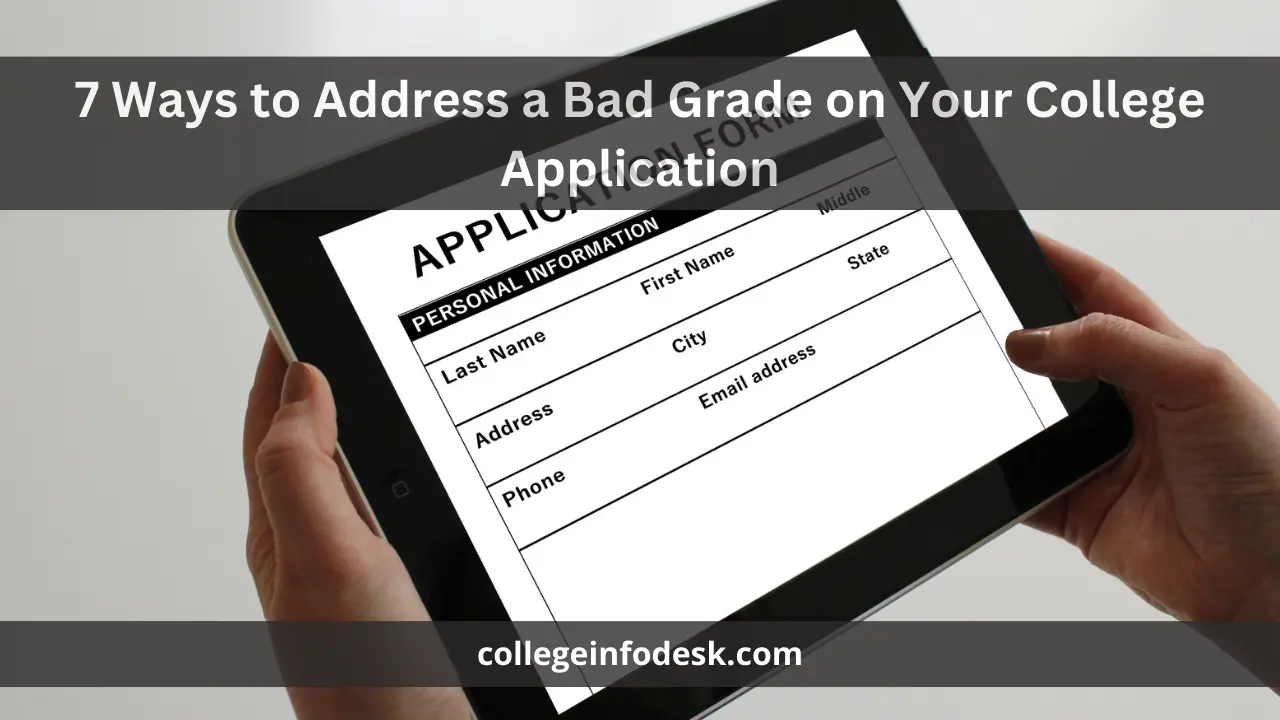The term “bad” can be highly subjective, especially when it comes to high school grades. For a driven student striving for acceptance into a top-tier college, even an A- or a B might feel like the end of the world. Meanwhile, for an average student, a “bad” grade could mean a more objectively poor outcome, such as a D or an F. In the real world, two students could receive a C on the same day and have entirely different reactions—one filled with elation, the other with despair.
To make sure this article resonates with you, regardless of your circumstances, let’s define a “bad” grade as one significantly lower than your typical academic performance—a relative blemish on an otherwise consistent record of achievement. It’s also important to clarify that we’re not discussing a bad grade on a single test or assignment—those won’t be visible to prospective colleges. Your marking period grades might not even appear on your transcript, which usually only shows final grades. Even if a college can see a poor grade from one marking period, they’ll likely focus on your overall performance.
Also read Georgetown Pre-College Online Program 2024
Now that we’re on the same page, let’s explore how to address a poor final grade on your college application:
Utilize Essays and Short Responses
The Common App essay and supplemental essays present an opportunity to provide context for a grade that doesn’t align with the rest. Whether you were grappling with a newly diagnosed learning disability, family turmoil, or personal struggles like depression, these essays offer a chance to showcase your resilience and humanity.
Seek Recommendations
Target recommendations from individuals familiar with the challenges you faced, such as your counselor, who can speak to your growth. Admissions officers understand that setbacks happen; demonstrating how you’ve overcome adversity can impress them and highlight your resilience.
Leverage AP Tests
Strong scores in relevant AP exams can mitigate the impact of a lower grade, especially if they align with your intended major. Whether it’s showcasing mastery despite a challenging teacher or demonstrating proficiency in subjects related to your future field, AP scores can bolster your application.
Craft a Narrative
Align your future major and career aspirations to minimize the significance of any unrelated setbacks. By emphasizing your strengths and passion in your intended field, you can redirect attention away from isolated grade discrepancies.
Excel in Standardized Tests
Balance out lower GPAs with impressive standardized test scores. Dedicate time to SAT/ACT preparation to showcase your academic prowess and demonstrate your potential to excel in college.
Target Forgiving Schools
Recognize that perfection is rare and seek out schools that value more than just flawless transcripts. Research universities with a track record of accepting students with varied academic backgrounds, ensuring a better fit for your unique profile.
Maintain Perspective
Don’t let setbacks define your future. Acknowledge challenges, seek support, and maintain focus on your long-term goals. Remember, one grade does not determine your worth or potential success.
By strategically using essays, recommendations, and standardized tests, and targeting forgiving schools, you can navigate academic setbacks and present a compelling application that showcases your strengths and resilience. Remember to maintain perspective and keep moving forward towards your goals.
Also see 20 Good Safety Schools 2024
Conclusion
When faced with a grade that doesn’t align with your typical academic performance, it’s essential to utilize every opportunity to provide context and showcase your strengths. Whether through essays or recommendations, highlighting the story behind the grade and demonstrating your resilience can greatly impact how admissions officers perceive your application. By strategically leveraging these resources, you can turn setbacks into opportunities for growth and present a compelling case for your candidacy. Remember, colleges value more than just grades—they’re looking for well-rounded individuals who have the determination and grit to thrive in their academic environment. So, embrace the chance to tell your story and show why you’re a great fit for their institution.
